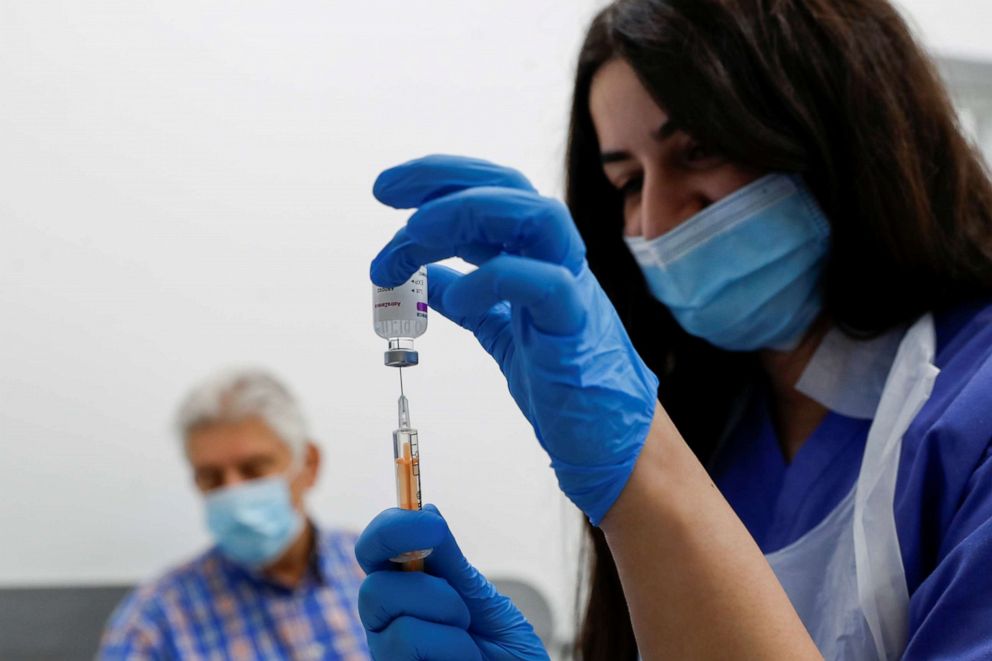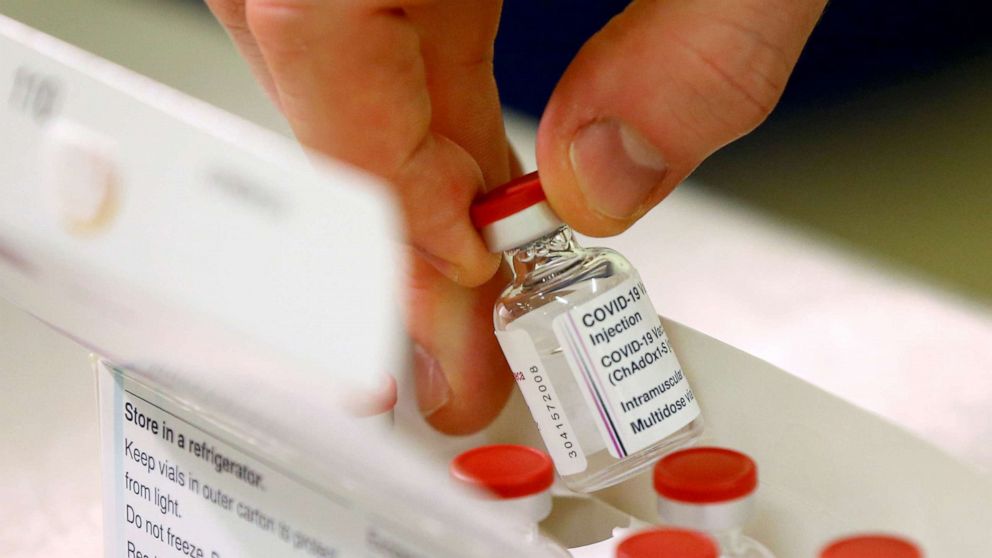What's at stake in the EU, AstraZeneca vaccine supply dispute
AstraZeneca said it's providing fewer doses than previously agreed upon.
LONDON -- Top EU officials have expressed "deep dissatisfaction" and mulled legal action against the British-Swedish pharmaceutical company AstraZeneca, after reports emerged over the weekend that the vaccine supplier would provide 60% less doses in the first quarter of 2021 to the 27-state bloc.
The row emerged when a senior European official told Reuters that the company was experiencing production problems, and that they had informed the EU that only 31 million COVID-19 vaccines would be supplied to the EU by the end of March. The company was expected to provide 80 million, the official told the news agency.

The vaccine, developed by the University of Oxford, has not yet been approved by the European Medicines Agency.
EU Health Commissioner, Stella Kyriakides, said in a press statement on Monday that the "new schedule is not acceptable to the European Union."
"Last Friday, the company AstraZeneca surprisingly informed the Commission and the European Union Member States that it intends to supply considerably fewer doses in the coming weeks than agreed and announced," she said. "The European Union wants to know exactly which doses have been produced by AstraZeneca and where exactly so far and if or to whom they have been delivered."
Kyriakides wrote to the company over the weekend to ask "important and serious questions," but the answers provided "have not been satisfactory so far," she said.
In a statement on Friday, AstraZeneca said that while there would be no delay once the vaccine was approved in the EU, "initial volumes will be lower than originally anticipated due to reduced yields at a manufacturing site within our European supply chain."
"We will be supplying tens of millions of doses in February and March to the European Union, as we continue to ramp up production volumes," the statement read. The vaccine has already been approved for use in the U.K. and India.

In her statement on Monday, Kyriakides said the EU was requesting the order, which was "pre-paid," be "delivered as soon as possible."
The CEO of AstraZeneca, Pascal Soriot, spoke to European Commission President Ursula Von der Leyen on Monday and stressed the company was "doing everything it can to bring its vaccine to millions of Europeans as soon as possible."
Italy Prime Minister Giuseppe Conte said: "Slowing down vaccine deliveries is a serious breach of contract, causing enormous damage to Italy and other European countries." The country is considering legal action against AstraZeneca, he added.
Peter Liese, German member of the European Parliament, joined in a chorus of European criticism of the company.
"The U.K. will get what was promised and the European Union will get much less and their explanation is: different supply chains," Liese said. "This is great nonsense: when you have a contract, you have to deliver."
The U.K. is well ahead of its continental counterparts in its vaccination drive, having given just over 10% of its population a vaccination dose. The U.K. approved the Oxford/AstraZeneca vaccine for use on December 30, and since then has been receiving doses from two factory sites in the U.K. The European Medicines Agency, by contrast, is set to give its recommendation on whether to approve the Oxford/AstraZeneca vaccine for use on Friday.
The bloc have also said they will introduce a new transparency mechanism for the export of future vaccines produced within the EU, which prompted reports in the British press that they were "threatening to block exports" of the Pfizer vaccine, which are produced in Belgium.
A spokesperson for the European Commission, however, rubbished such claims in a statement to ABC News, saying that the new transparency regulations would "absolutely not" impact the export of vaccines to third countries.
"The EU is not imposing an export ban on vaccines nor restricting the export of vaccines to third countries," the Commission spokesperson said. "The Commission has proposed an export transparency mechanism to bring clarity on the production capacity of manufacturers, i.e the number of doses produced, in which production centers and how many doses sold to which countries, including the EU27. This is a matter of transparency on the deliveries."
The Commission will "reevaluate the state of play" after a "steering board meeting" tomorrow, the spokesperson said.
Additional reporting came from ABC News' Clark Bentson




